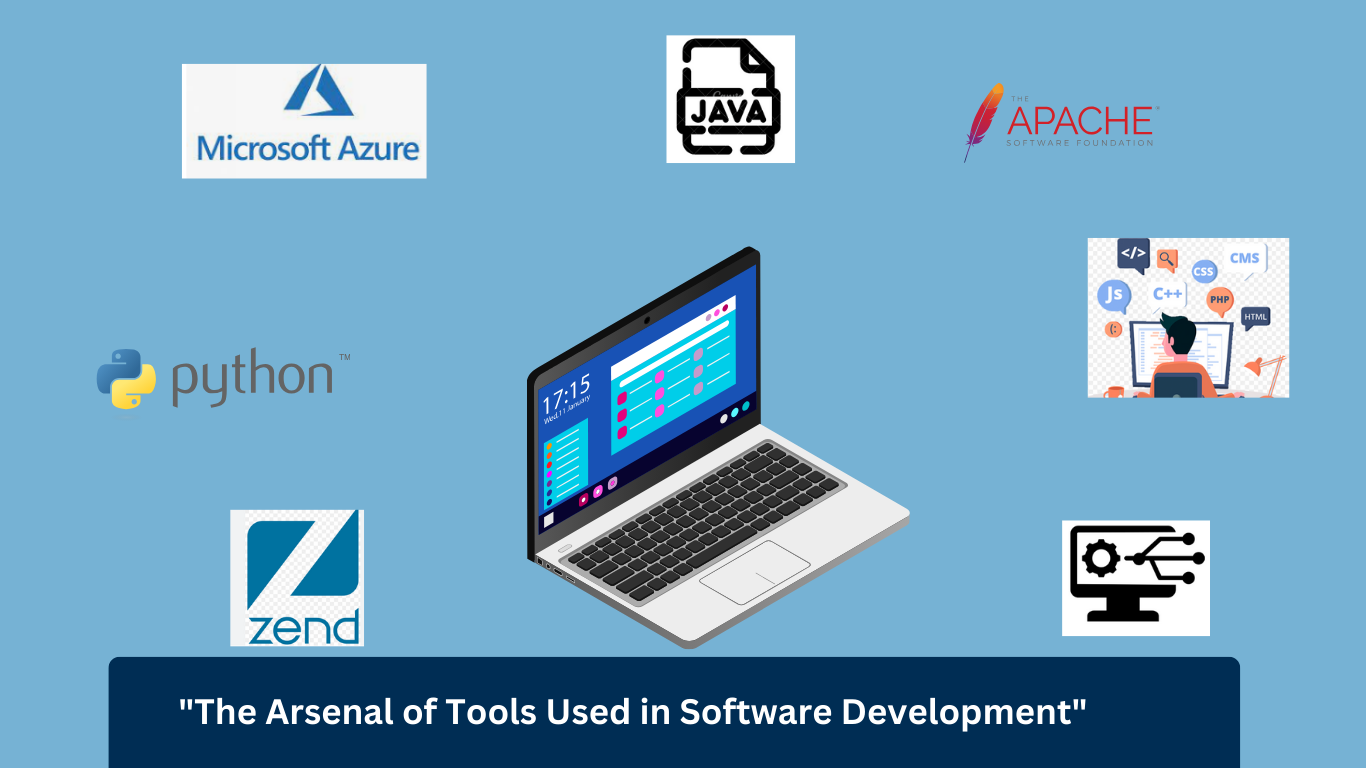In today’s rapidly evolving digital landscape, software development stands as the cornerstone of technological advancement. Behind every groundbreaking application and system lies a comprehensive suite of tools, meticulously crafted to empower developers in their quest to innovate and create. From programming languages to integrated development environments (IDEs) and version control systems, each tool plays a pivotal role in shaping the future of software applications. From the expressive power of programming languages to the efficiency of build automation tools and the collaborative nature of version control systems, each tool plays a vital role in shaping the future of software applications. By harnessing the capabilities of these tools, developers can unleash their creativity, accelerate the development process, and build transformative solutions that drive progress and change the world.In this blog post, we delve into the diverse array of tools used in software development, highlighting their significance and impact on the development process.
Programming Languages: Programming languages serve as the building blocks of software development, providing developers with the means to express their ideas and translate them into functional code. From the versatility of Java to the simplicity of Python and the efficiency of C++, each language offers unique capabilities suited to different domains and applications.
Integrated Development Environments (IDEs): IDEs are comprehensive software platforms that streamline the development process by integrating various tools and features into a unified environment. With functionalities such as code editing, debugging, and version control integration, IDEs like Eclipse, Visual Studio, and IntelliJ IDEA empower developers to write, test, and debug code with ease and efficiency.
Version Control Systems (VCS): Version control systems are essential tools for managing changes to source code over time, enabling collaboration among developers and ensuring the integrity and traceability of codebase modifications. Git, with its distributed architecture and branching capabilities, has emerged as the de facto standard for version control, empowering teams to work collaboratively and efficiently across distributed environments.
Build Automation Tools: Build automation tools automate the process of compiling source code, running tests, and packaging software artifacts, streamlining the build process and enhancing productivity. Apache Maven and Gradle are popular choices for managing project dependencies, defining build configurations, and orchestrating complex build workflows with ease and reliability.
Compilers and Interpreters: Compilers and interpreters are fundamental tools for translating source code into executable programs or bytecode. GCC and LLVM are renowned compiler frameworks that support multiple programming languages, while Python’s interpreter facilitates the execution of Python scripts and applications across diverse platforms.
Ending:
As an IT & software company, Xovient is committed to harnessing the latest tools and technologies to drive innovation and deliver exceptional results for its clients. By leveraging a diverse toolkit of programming languages, IDEs, version control systems, build automation tools, and compilers/interpreters, Xovient empowers its team of skilled developers to turn ideas into reality, transforming vision into tangible solutions that propel businesses forward in the digital age. The arsenal of tools used in software development represents a catalyst for innovation and creativity. By embracing cutting-edge technologies and methodologies, companies like Xovient are poised to revolutionize the landscape of IT and software development, driving value, efficiency, and success for clients across industries. Together, let us unlock the full potential of software development and pave the way for a brighter, more connected future.

